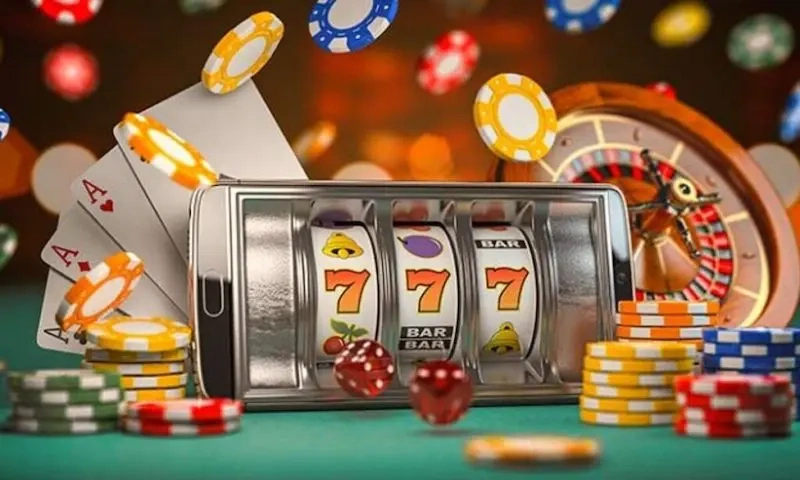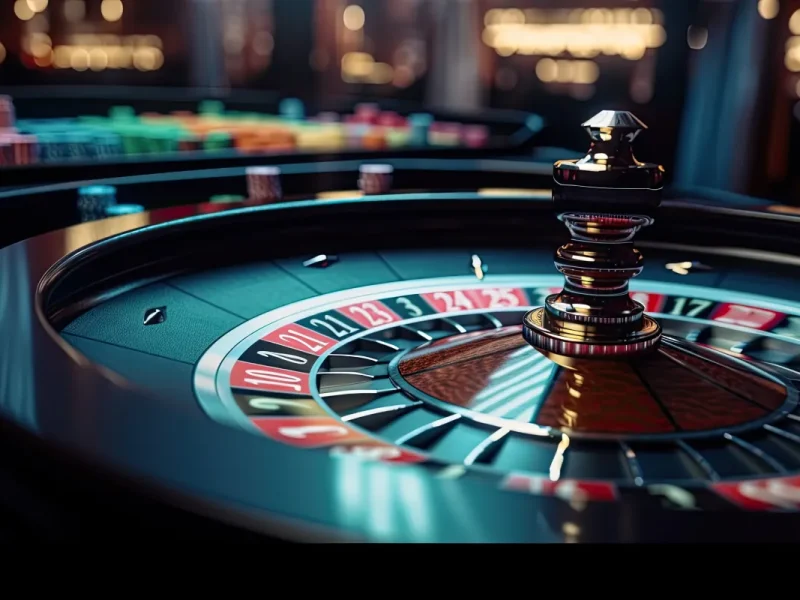A Bright World That Fades After Play
You leave the casino. Whether it was virtual or in-person, everything outside suddenly feels flat. The sunlight is too bright, the traffic too loud, and the air oddly empty. After hours surrounded by spinning reels, pulsing colors, and synthetic cheers, the real world seems… underwhelming.
This emotional shift isn’t a coincidence – it’s the aftershock of an overstimulated mind re-entering a less sensational reality. Platforms like Rabona harness state-of-the-art game environments that amplify this effect by immersing players in dynamic, euphoric feedback loops. But why does this transition feel so jarring? And what does it reveal about the human mind?
This article explores how extended time in casinos – digital or physical – alters perception, emotion, and cognition, making real life feel strangely dimmer by comparison.
The Casino as a Sensory Overload Chamber
Colors, Sounds, and Lights – Perfectly Tuned
Casinos are engineered environments. Every light flicker, coin drop, and visual flash is designed to heighten your senses. These stimuli aren’t random – they align with color psychology, audio conditioning, and even neurological reward cycles.
The “Vegas Effect” in Digital Form
Online platforms recreate the classic casino sensation through visual animations, surround sound, and real-time reward feedback. Even the waiting time between spins is calculated to maximize tension and keep dopamine primed.
Dopamine Saturation and Emotional Numbness
The Neurochemical Peak
Dopamine, the brain’s pleasure molecule, spikes during gambling activities – particularly in moments of anticipation. After hours of sustained dopamine activity, the brain starts to buffer. This biochemical hangover causes a form of emotional flatness, making non-casino environments feel sterile.
Fatigue Without Physical Strain
Unlike manual labor or exercise fatigue, casino fatigue is cognitive. After prolonged focus, multitasking, and emotionally charged near-misses or wins, the brain burns out, leaving the real world to feel unnaturally slow and unengaging.
The Time Warp: Chronological Dissonance
Casinos and Time Deprivation
Whether physical or virtual, casinos erase time cues. There are no clocks, windows, or external references. Games have no “stopping points” – they’re infinite loops. This sensory isolation makes hours pass like minutes.
The Return to Linear Time
Once outside the casino, the linear nature of time – waiting in line, sitting in traffic, dealing with real-world tedium – feels more oppressive than ever. Your brain must recalibrate from non-linear immersion to clock-based function.
Reality Feels Unrewarding by Comparison
Variable Ratio Reinforcement
Casino games rely on unpredictable reward schedules. Every action carries the possibility of a big win. This psychological structure keeps players hooked and makes real-life activities – where rewards are less immediate – feel disappointingly bland.
Low-Stakes Real Life
After the emotional drama of wins, losses, and fast-paced gameplay, everyday experiences can feel dull. It’s not that life has changed – it’s that your perception has.
The Cinematic Universe of Casino Design
Storytelling and Escapism
Casino games now tell stories. They unfold like mini-movies with narratives, character arcs, and soundtrack scores. Casino offers themed slots that play like episodic adventures. Compared to such engaging dynamics, making dinner or checking emails lacks allure.
Emotional Intensity and Contrast
Emotions inside casinos range from ecstatic highs to gut-wrenching lows. Outside, emotions flatten. The contrast causes an existential slump – one that makes real-world interactions feel emotionally muted.
Experts Explain the Phenomenon
Dr. Helena Petrovic, Cognitive Neuroscientist
“Immersive gambling environments trigger sustained sympathetic nervous system activation. When you leave that high-stim zone, the parasympathetic system reboots. The emotional crash is inevitable.”
Jasper Lieu, UX Designer for Digital Casinos
“We design games to feel better than life. That’s the brief. You can’t outshine reality unless you outstimulate it – and that’s exactly what we do with colors, motion, and unpredictable reward cues.”
The Real World Is Underpowered… Temporarily
Neuroplasticity and Resetting Perception
The good news? The brain adjusts. The initial grey feeling fades after a few hours. Like returning from vacation, your senses gradually recalibrate. The grass gets greener again.
Mindfulness as a Transition Tool
Practicing post-play grounding techniques – like walking in nature, deep breathing, or journaling – can ease the emotional shift. Grounding helps restore sensory balance and cognitive focus.
Why the Dullness Feels Personal
The Illusion of Agency
In casinos, every click or tap yields immediate feedback. Wins, bonuses, losses – they’re all triggered by you. This creates a strong illusion of control. In contrast, reality often feels indifferent.
From Hero to Observer
Players often feel like protagonists in the casino world. Outside, that agency dissolves. Bills, responsibilities, and social noise return you to passive roles. The ego recoils from this demotion.
A Comparison to Other High-Stim Activities
Similarities to Social Media or Gaming
Just as social media can cause post-scroll numbness, or binge-watching can dull real-time interactions, casino sessions reshape expectation thresholds. This is stimulation burnout, and it’s not unique to gambling.
How Gambling Goes Deeper
Casino games manipulate hope and personal financial stakes – creating a deeper emotional imprint. This raises the contrast with real life, intensifying the post-session void.
User Testimonials: Life After the Spin
Andreas, 34, Thessaloniki
“I leave a long session and it’s like everything’s on mute. I don’t want to talk to anyone. I just sit there waiting for the colors to come back.”
Maria, 26, Crete
“Even food tastes different after a big win – or loss. It’s like my body forgets what normal feels like. Casino is like a digital theme park. Home feels boring in comparison.”
Design Strategies That Extend the Effect
Continuous Reward Cycles
Games are designed with overlapping win mechanics – scatter symbols, progressive jackpots, bonus wheels – all layered to sustain intensity. This stacking exhausts neural sensitivity to subtler pleasures.
Background Music and Environmental Sound
Looping music, escalating audio cues, and victory fanfares mimic soundtracking in films. These elements heighten emotional engagement and make real-world silence feel emotionally empty.
The After-Session Emotional Map
Stage 1: Elation or Emptiness
Depending on outcomes, players exit the session feeling euphoric or disappointed. Both emotions flood the system, distorting post-session reality.
Stage 2: Fatigue and Reflection
As emotions fade, cognitive fatigue sets in. Players may feel reflective, drained, or confused about time spent.
Stage 3: Reintegration
Within hours or a full day, senses normalize. The user resumes ordinary tasks – but often with subtle longing to return to the intense clarity of the game environment.
Finding Balance: Responsible Excitement
Scheduled Breaks and Play Sessions
Structuring your playtime helps maintain healthy dopamine levels. Set timers. Take breaks to stretch, hydrate, or engage in low-stimulus activity.
Post-Play Rituals
Create a post-casino ritual: a walk, meditation, or even a phone call to a friend. Rituals help mark psychological transitions between fantasy and reality.
The Role of Platforms
Immersive Design with Safeguards
Casino’s design strategy includes high-stim engagement, but also integrates optional limiters, reality checks, and “pause” reminders – helping players stay mindful even in intense play environments.
Evolving Ethical Frameworks
As casinos embrace entertainment-driven experiences, ethical design is becoming a differentiator. Transparency, session summaries, and opt-in mindfulness tools will shape the next era of gaming.
Conclusion: The Brightness of Balance
The feeling that “the world isn’t so bright” after a few hours in a casino is real – and deeply rooted in sensory, psychological, and neurological factors. It’s not a failure of the outside world, but a feature of a brilliantly designed inner one.
When you engage with platforms, you’re entering an engineered realm where stimulation is hyper-optimized. The contrast with reality will always be sharp – until you learn to bridge the two worlds with awareness.
Let the thrill exist – but let the grounding follow. The real world may not glow like a slot screen, but with presence and perspective, its subtle beauty can shine just as brightly.



